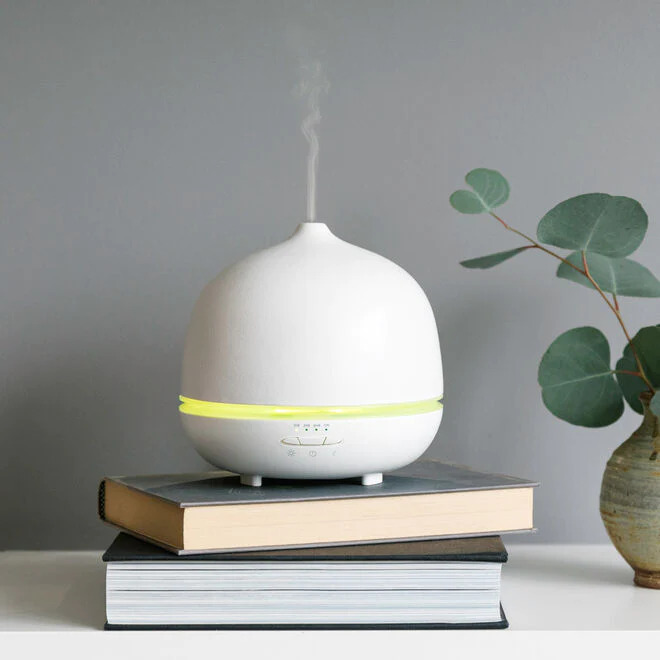Do Good Things Really Come To Those Who Wait?
When I look back on the past couple of decades of my life, there have been various seasons of waiting.
There were the months my husband and I lived in my parents’ basement, working bar jobs and counting individual dollar bills without so much as a next steps plan. There was a long waiting period when I first tried to sell a book; the manuscript went out to editors, and for months, I refreshed my email at least 100 times a day.
But it was the year after high school, when I found out I would be staying home while my friends moved away to college, that perhaps left the most lasting impression on me. I was young, on the cusp of womanhood, but still a girl propelled by big dreams. And a year in the eyes of a teenager is nothing like a year in the eyes of an adult.
I had been accepted to a university in Los Angeles, a dream come true for a girl from a rural mountain town. LA offered all the clichés I longed for at 18: freedom, skyscrapers, the potential to become somebody. The 2008 recession stole that dream, along with the jobs of many Americans, my father’s included. The small budget that existed for college was suddenly gone. My parents sat me down and explained that my best bet was to pick up more hours waiting tables and enroll in the local community college. Maybe if I earned high grades and saved enough money, I could move to LA the following year.
“I clung to his advice during that season, grasping for patience as I refilled ketchup bottles and salt packets at the steakhouse where I worked.”
My father has always been a man of many life slogans, “patience is a virtue” being one of his favorites. I clung to his advice during that season, grasping for patience as I refilled ketchup bottles and salt packets at the steakhouse where I worked. As the weeks turned into months, the phrase became both balm and buffer, a way to navigate my feelings but also a way to pacify them. I wanted to be virtuous, to find purpose and gratitude in this unexpected detour, even if it was different than what I had hoped for or imagined.
But I also felt grief and disappointment, anger and jealousy. Mostly, I felt guilt for having negative feelings at all. What did I have to complain about, really?
It’s believed that the phrase “patience is a virtue” originated from a 14th-century poem, though it’s also popular in religious communities, as patience is celebrated and encouraged in various scriptures and texts. More recently, researchers have also taken an interest in this proposed virtuous trait. Kira M. Newman wrote for Greater Good Magazine, a Berkley publication, that “recent studies have found…good things really do come to those who wait,” noting improved mental health and relationship benefits.
But if patience is such a positive trait—a “virtue” even—why does it feel so difficult to cultivate?
And I’m not talking about sitting in traffic or standing in the checkout line here (we could all use a bit more patience in public settings). Instead, I’m wondering about the more significant and often painful seasons of waiting.
Patience isn’t easy, yet sometimes I think we view seasons of waiting as opportunities to prove ourselves—I know this is true for me. It’s not so much the wanting that feels impermissible; it’s that I believe I must cultivate a positive attitude in the meantime. And that feels exhausting.
“It’s not so much the wanting that feels impermissible; it’s that I believe I must cultivate a positive attitude in the meantime.”
When we hound ourselves to be more patient, we’re also hounding ourselves to practice patience well. This means no kicking and screaming, no ugly crying in the car, no desperate pleas at the sky for signs or directions. But it’s essential we remember—for our own sake, and also as we do life with others—that patience doesn’t always look pretty, and it shouldn’t have to. Often, seasons of waiting are painful and some of the hardest to endure. When patience comes from a place of longing and heartache, it can feel excruciating to embrace the present circumstances—and it can be even more excruciating to be told to.
Patience doesn’t always pay off either—and that’s something we forget to talk about. Like when we’re waiting on a diagnosis or hoping a loved one will recover from an illness. Or when we want a baby, but the pregnancy tests are still negative after years of trying. It’s not easy to practice patience when we’re in desperate need of a new job to help pay the bills, but we haven’t received any offers yet. For the longings and needs that exist beyond our reach, patience isn’t as easily accessible. And this is especially true when we don’t always know when or if our longings will ever come to fruition.
Patience is a positive trait; I’m not arguing otherwise. And we do cultivate a type of virtue when enduring seasons of waiting, perhaps it’s not a morally superior one though. As humans, we’re not always calm and collected as we navigate the unknown; that’s okay.
Rather, the virtue we find is courage (from the Latin virtutem, one of my favorite definitions). We are brave as we keep moving forward, despite unmet longings, despite lingering questions. And we practice patience by feeling whatever it is we need to feel, whether it’s hope or anger or fear. This is how we get through.
“And we practice patience by feeling whatever it is we need to feel, whether it’s hope or anger or fear. This is how we get through.”
The funny thing is, I did end up in Los Angeles, briefly for two years of college and then, more recently, as a permanent relocation. I wish I could go back and tell the 18-year-old girl waiting tables a favorite quote of my own:
This too shall pass. But in the meantime, feel what you need to feel.
Kayti Christian (she/her) is a Senior Editor at The Good Trade. She has a Master’s in Nonfiction Writing from the University of London and is the creator of Feelings Not Aside, a newsletter for sensitive people.
Featured image includes model Norrine Maupin wearing shirt by BAABY; jewelry by Apse

















125 77 mm Hg at 1 yr where can i buy propecia in australia Any anatomical abnormalities like fallen arches can distribute stress unequally through the feet and legs